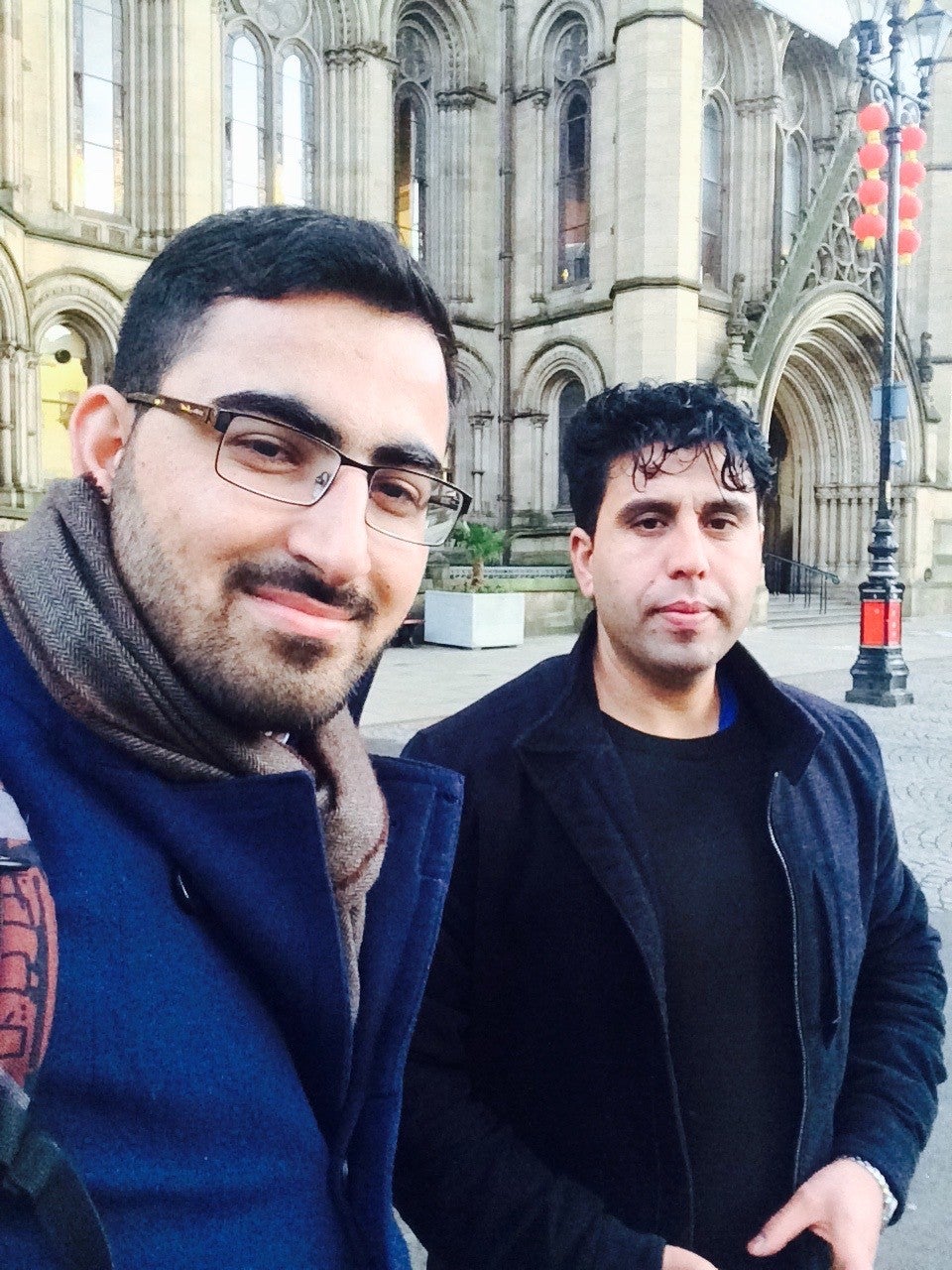
An Afghan refugee is living in “fear of deportation” after the Home Office served him with a removal notice to his Taliban-controlled homeland.
In what is thought to be a rare case, the government has told Shafiqullah Khaksar that he has to explain in writing why he should not be deported.
There have been no forced removals from the UK to Afghanistan since at least the end of September 2021, according to the latest Home Office data which runs up to summer 2022. However five Afghans have been deported to a destination which is not their home country.
Mr Khaksar, 29, arrived in the UK after a perilous journey across the Channel at the end of September. He spent a few days in the overcrowded Manston processing centre before he was prosecuted for entering the UK without a passport.

He was convicted on 29 September after he was told to plead guilty by an on-duty solicitor, and was jailed for 12 months. Mr Khaksar is now trying to challenge his deportation but has only been able to speak to a lawyer a handful of times since being incarcerated at Maidstone prison.
Mr Khaksar grew up in the UK, having spent a decade here arriving as a child in 2006, his friends said.
In a statement passed to his friend Gulwali Passarlay from prison, Mr Khaksar said: “I feel criminalised and penalised for seeking protection and asylum in the country that I have spent half my life in. It’s disappointing and disheartening to be treated with such a lack of compassion and understanding for my circumstances.
“I have left my pregnant wife and elderly mother in Afghanistan. If my life wasn’t in danger, I wouldn’t have done that. Crossing the English Channel was a life-or-death situation and I request humane and fair treatment from the Home Office, not punishment and imprisonment for arriving irregularly.
“Seeking asylum is our human right. I have not only been treated inhumanely but I am being kept in fear of deportation and limbo.”

A notice of the Home Office’s decision, sent to Mr Khaksar on 9 November, reads: “You were convicted of enter [sic] United Kingdom without a passport, for which you were sentenced to 12 months imprisonment. As a result of your criminality, the secretary of state deems your deportation to be conducive to the public good and as such you are liable to deportation.”
It continues: “The secretary of state proposes to give directions for your removal to Afghanistan … If there are any reasons why you should not be deported there, or if there are any reasons why you believe you should be deported to another country or territory, you must tell us in writing within 20 working days.”
His friends are hopeful that Mr Khaksar will not be deported imminently as the Home Office has a legal obligation to consider his asylum claim before he is deported. It is thought the deportation notice was triggered automatically because of his prison sentence.
Mr Khaksar has no other criminal convictions, the Crown Prosecution Service confirmed.
According to Home Office data on returns, there have been 12 “voluntary returns” of Afghans since the Taliban’s takeover in August 2021. These are cases where the person agrees to leave and is assisted in doing so by the government. Three of these people are recorded as being returned to Afghanistan.
There are also five cases of “enforced returns”, or deportations; three recorded from April to June this year, and two recorded from January to the end of March 2022.
Mr Khaksar said Home Office officials have told him he could volunteer to return to Afghanistan.
Government guidance on Afghanistan states that the risk of harm for returnees has decreased since the Taliban takeover. It says: “Given the significant decrease in the levels of violence, there is no part of Afghanistan where, in general, conditions are such as to result in serious harm.”
But decision-makers are told they “must consider whether there are particular factors relevant to the person’s circumstances which might nevertheless place them at risk”.
In a separate briefing note on risk, decision-makers are also told that a person is at risk from the Taliban if they have “credibly resisted or opposed” the regime or if they are “perceived as ‘Westernised’ after having spent time in the West”.
A Home Office spokesperson said that they do not routinely comment on individual cases. They added: “All asylum claims, including those from nationals of Afghanistan, Yemen, and Syria, are considered on a case-by-case basis, based on the facts presented by the claimant.
“That is the case regardless of the claimant’s country of origin and the prevailing situation there. We will not return anyone to countries where they have been found to be at risk of persecution or serious harm.”
Mr Khaksar spent the vast majority of his youth in the UK, following his arrival as an unaccompanied minor in 2006. He was taken in for two years by a foster family in Gillingham, Kent and went to school here.

He had a national insurance number and did different forms of shift work after college, while trying to apply for further leave to remain in the UK. He was eventually deported back to Afghanistan in 2016 after his asylum claim was rejected.
Gulwali Passarlay, who has known him since 2006, said: “Shafiq is just in limbo and who knows what will happen to him. There are no other Afghans in prison with him. He has been singled out. It’s like the Home Office is experimenting with him to see how it goes. At the end of the day, he is an asylum seeker and should not be criminalised. Especially as there are no safe and legal routes from Afghanistan to the UK.
“The Home Office managed to take him to court within 5 days. Imagine, he’s crossed the Channel escaping death, he was exhausted and then he was delivered to court.”
Hannah Marwood, Legal Access Manager at Care4Calais, said: “It is worrying that the government could consider deporting anyone to Afghanistan to face an uncertain and unsafe future under the Taliban regime. The Home Office’s own statistics show that 98 per cent of asylum claims by Afghans have been accepted which acknowledges the dangerous situation in the country.”
Maya Bowles met Mr Khaksar when he was volunteering as a translator for a medical NGO in Thessaloniki in Greece last year. She described him as “the most positive, optimistic man you have ever met”.
“He’s always been focused on getting to the UK, because that is where he has connections. His English is perfect and he is a brilliant linguist, speaking many languages.
“He would help the doctors and nurses so much, taking refugees to legal or health appointments and translating for them,” she said.
Mr Khaksar loved British tea and snacks and would get excited at news that an English volunteer was coming to join the team, asking them to bring his favourite treats with them, Ms Bowles explained.
“He is also the most groomed person, he loves skinny jeans, he has been in the West and with Western organisations for too long. He is extremely Westernised,” she added.







